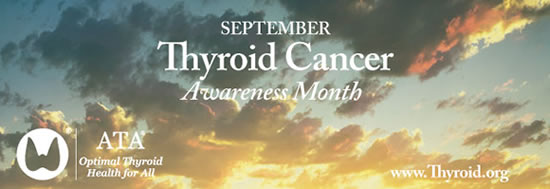
Clinical Thyroidology for the Public summarizes selected research studies discussed in the previous month’s issue of Clinical Thyroidology, an official publication of the American Thyroid Association. Editor-in-chief, Alan Farwell, MD, FACE
Available in pdf format for saving and printing and Web page format for viewing online
PDF Format for Saving and Printing
Clinical Thyroidology for the Public Volume 14 Issue 9 (PDF file, 5.27 MB)
TABLE OF CONTENTS – Web Format
THYROID FUNCTION TESTS
How does COVID-19 affect the thyroid?
COVID-19 has a high risk of death from failure of the respiratory system, but it may affect many different systems of the body. Changes in thyroid hormone levels can occur as a reaction to illness or due to a direct effect on the thyroid. In this paper, the authors aimed to get more insight into the reasons for the changes that occur in thyroid function tests during COVID-19.
Campi I et al 2021 The spectrum of thyroid function tests during hospitalization for SARS COV-2 infection. Eur J Endocrinol 184:699–709. PMID: 33683214.
THYROID EYE DISEASE
Teprotumumab improves the clinical course of thyroid eye disease
Thyroid eye disease (TED) is a complex disease that can be disfiguring, and, more rarely, threaten vision. The best time to treat TED and prevent long term complications is during the acute inflammatory phase. However until recently, treatment options for TED have been limited. This study reviewed the results of 2 clinical trials of teprotumumab, representing one of the largest controlled study populations of patients with TED to date.
Kahaly GJ et al Teprotumumab for patients with active thyroid eye disease: a pooled data analysis, subgroup analyses, and off-treatment follow-up results from two randomized, double-masked, placebo-controlled, multicentre trials. Lancet Diabetes Endocrinol. 2021 Jun;9(6):360-372.
GRAVES’ DISEASE
Statin use associated with lower incidence of developing thyroid eye disease in patients newly-diagnosed Graves’ disease
Thyroid eye disease (TED) is a complex disease that causes inflammation of the eyes, eye muscles and the surrounding tissues. The cholesterol medications know as statins are thought to potentially have anti-inflammatory effects. This study examined the association between the use of statins and other cholesterol-lowering agents on the development of TED in patients with newly diagnosed Graves’ disease.
Nilsson A et al 2021 Statins decrease the risk of orbitopathy in newly diagnosed patients with Graves disease. J Clin Endocrinol Metab 106:1325–1332
HYPOTHYROIDISM
Is a computer program better than clinicians at adjusting levothyroxine after thyroidectomy?
After a thyroidectomy, patients must take thyroid hormone pills (levothyroxine) daily for the rest of their lives. Finding the correct dose of this medicine can be challenging. In this study, the authors examined whether using a computerized decision aid tool (DAT) to adjust the levothyroxine dose after only two weeks would be possible.
Brun VH et al. Patient tailored levothyroxine dosage with pharmacokinetic/pharmacodynamic modeling: A novel approach after total thyroidectomy. Thyroid. Epub 2021 May 12
THYROID CANCER
Postmenopausal women whose TSH levels are kept suppressed for treatment of thyroid cancer may have lower bone density.
After thyroidectomy for thyroid cancer, patients were often placed on levothyroxine doses that were high enough to suppress TSH levels to prevent recurrence of the cancer. Long-term suppression of TSH can result in low bone density and osteoporosis. This study evaluated potential effects of TSH suppression therapy for thyroid cancer on bone density in three different groups of patients.
Ku EJ et al. 2021 Effect of TSH Suppression Therapy on Bone Mineral Density in Differentiated Thyroid Cancer: A Systematic Review and Meta-analysis. J Clin Endocrinol Metab. Epub 2021 Jul 24. PMID: 34302730
THYROID AND PREGNANCY
Iodine supplementation in pregnant women with Hashimoto’s Thyroiditis
Maintaining adequate iodine intake is essential for thyroid hormone production, which plays a vital role in the development of the baby. The ATA recommends adding to the diet a daily oral supplement that contains 150 μg of iodine during pregnancy. Iodine can variably affect thyroid function in patients with Hashimoto’s thyroiditis. This study aimed to examine the effects iodine supplementation thyroid hormone levels and TPO antibodies in pregnant women with preexisting Hashimoto’s thyroiditis.
van Heek L et al 2021 Avoidance of iodine deficiency/excess during pregnancy in Hashimoto’s thyroiditis. Nuklearmedizin. Epub 2021 Mar 23. PMID: 33759148.




